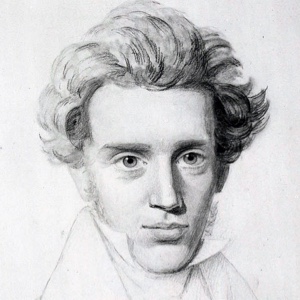
Soren Kierkegaard (1813 – 1855) was a Danish philosopher, theologian, poet, social critic and religious author who is widely considered to be the first existentialist philosopher. Kierkegaard first attended the School of Civic Virtue, and later went on to study theology at the University of Copenhagen. He was a prolific writer whose works include philosophy, theology, psychology, literary criticism, devotional literature and fiction. Much of Kierkegaard’s work was written under various pseudonyms with strikingly contrasting perspectives. His most well known being Either/Or, published in 1843. By the mid-20th century, his thought exerted a substantial influence on philosophy, theology, and Western culture.

Quotes by Soren Kierkegaard…
Adversity draws men together and produces beauty and harmony in life’s relationships, just as the cold of winter produces ice-flowers on the window-panes, which vanish with the warmth.
Do you earnestly ponder and sincerely try to understand?
Let your understanding be your action.
Do you not know that there comes a midnight hour when every one has to throw off his mask? Do you believe that life will always let itself be mocked? Do you think you can slip away a little before midnight in order to avoid this? Or are you not terrified by it? I have seen men in real life who so long deceived others that at last their true nature could not reveal itself… In every man there is something which to a certain degree prevents him from becoming perfectly transparent to himself; and this may be the case in so high a degree, he may be so inexplicably woven into relationships of life which extend far beyond himself that he almost cannot reveal himself. But he who cannot reveal himself cannot love, and he who cannot love is the most unhappy man of all.
Life is not a problem to be solved, but a reality to be experienced.
A thinker erects an immense building, a system, a system which embraces the whole of existence and world-history, etc. And if we contemplate his personal life, we discover to our astonishment this terrible and ludicrous fact, that he himself personally does not live in this immense high-vaulted palace, but in a barn alongside of it, or in a dog kennel, or at the most in the porter’s lodge. If one were to take the liberty of calling his attention to this by a single word, he would be offended. For he has no fear of being under a delusion, if only he can get the system completed… by means of the delusion.
If he falls in this conflict, then he falls by his own hand, for physically and externally understood, I can fall by the hand of another, but spiritually there is only one who can destroy me, and that is myself.
Eternity alone understands about compassion. If you therefore wish to learn to understand compassion, you must learn it from eternity. But if you wish to understand the eternal, then there must be quiet about you, while you absolutely center your attention on inwardness.
Love is not an art like poetry, possible only to the few endowed for it, it is open and accessible to all.
And in eternity no mockery will wound the lover because he was foolish enough to make himself a laughing-stock through hoping everything.
